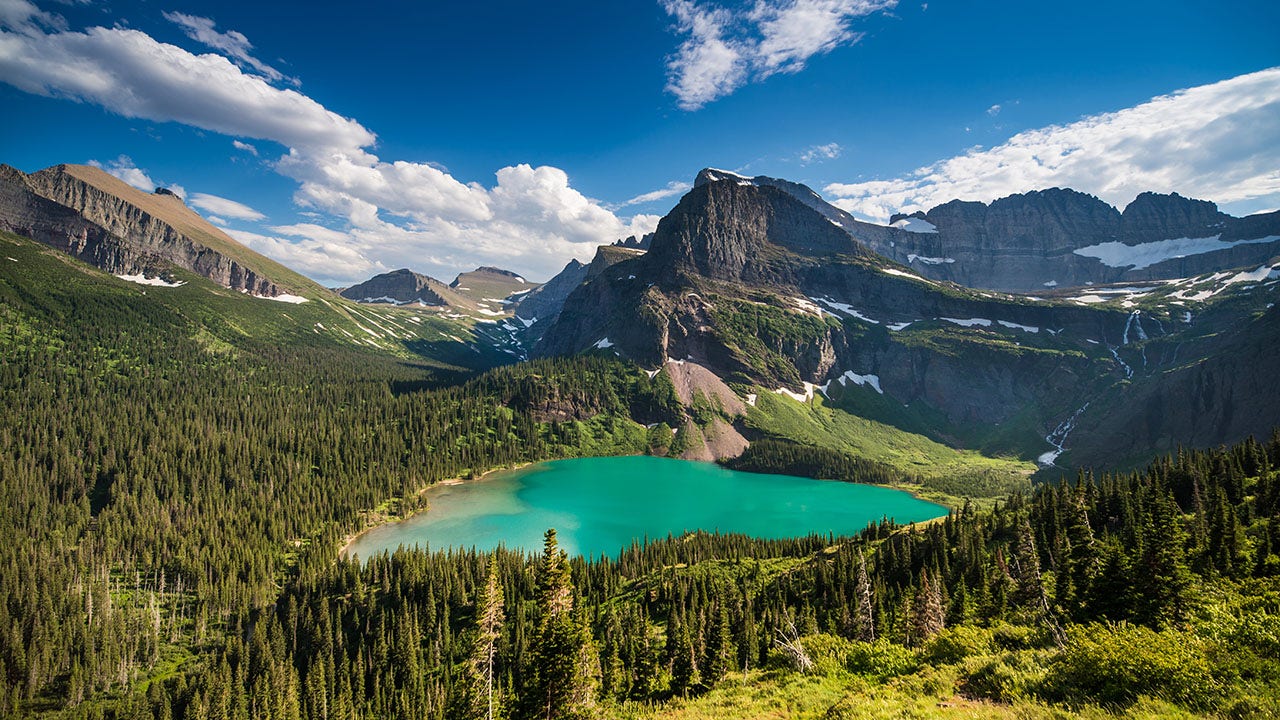T’s monthly travel series, Flocking To, highlights places you might already have on your wish list, sharing tips from frequent visitors and locals alike. Sign up here to find us in your inbox once a month, and to receive our weekly T List newsletter. Have a question? You can always reach us at tlist@nytimes.com.
A sandy, 15-mile spit that reaches across Arcachon Bay like a protective arm, Lège-Cap Ferret, on France’s western coast, is that country’s answer to New York’s Montauk, albeit dialed back a decade or two. Cap Ferret — not to be confused with Cap Ferrat, the glitzy, southeastern French peninsula with almost the same name — is a 30-minute ferry ride from the seaside town of Arcachon and features a varied, contrary, landscape: oyster farms on the tranquil lagoon, or bassin side, and a broad surf beach on the Atlantic side (“When there are waves, they are gigantic,” says the designer and architect Philippe Starck), which has attracted Parisians since the 1950s.
The past 15 years brought an influx of even more bourgeois-bohemian visitors — locals blame the 2010 movie “Little White Lies,” written and directed by Guillaume Canet and starring Marion Cotillard, along with the high-speed train that cut the journey time from Paris to Bordeaux, roughly 45 miles from Cap Ferret, to just over two hours in 2017. Yet the peninsula has managed, for the most part, to remain low-key.
Hotels are of the charming rather than luxury variety, while bicycles, vintage Citroëns and Mini Mokes outnumber Range Rovers and sports cars. And oyster cabanes, offering shellfish (an estimated 60 percent of the oysters consumed in France derive from the Arcachon Bay), white wine and not much else, serve as the local canteens.
Across the lagoon is Pyla-sur-Mer, a genteel village that’s home to the Philippe Starck-designed hotels La Co(o)rniche and Hotel Ha(a)ïtza and Europe’s tallest sand dune, the hulking Dune du Pilat, which rises more than 300 feet and makes for a challenging climb. Elegant Arcachon is also worth a visit for its markets and intriguing Ville d’Hiver, an enclave of ornate villas built in the 19th century for wealthy residents convalescing during Europe’s tuberculosis epidemic. Whatever you do, leave time to explore the dune-backed la Plage de l’Horizon on Cap Ferret’s Atlantic side. “It’s one of the last places in France where you can be alone on a beach in the middle of summer,” says the artist and fashion designer Marguerite Bartherotte. Here, Bartherotte, Starck and two other locals share some of their favorite spots.
The Insiders
The artist and fashion designer Marguerite Bartherotte grew up in Cap Ferret. She’s the co-founder and creative director of the label G. Kero, which has a boutique in Cap Ferret and in Paris.
Farid Ben Ahmed is the manager of the Moroccan homewares store Etincelles in Cap Ferret and splits time between Bordeaux and Marrakesh.
The designer Sarah Poniatowski is the founder of the homewares and clothing brand Maison Sarah Lavoine. She lives mostly in Paris but has a home in Cap Ferret and has vacationed in the area since she was a child.
The designer and architect Philippe Starck is based in Portugal and has a home in Cap Ferret. He designed both the La Co(o)rniche and Ha(a)ïtza hotels in Pyla-sur-Mer, across the bay from the peninsula, and La Pâtisserie de ma Fille, which opened in Arcachon last year. He’s currently building a small hotel in Cap Ferret.
Illustrations by Richard Pedaline
“Hôtel des Pins is a charming throwback to the 1930s in a tranquil location on the bassin side. It started life as a theater and was turned into a hotel by a former Bordeaux footballer in 1999. There are 13 rooms, a restaurant and a terrace.” (Rooms from about $100 a night.) — Marguerite Bartherotte
“Hôtel des Dunes was the first hotel to open in Cap Ferret, in 1969, and it reopened last year after a complete restoration. It’s in the sand dunes, a [short] walk from the ocean, and has a surfy vibe. The 13 rooms are simple and retro, with tiled headboards, Bakelite phones and striped deck chairs on the terraces.” (Rooms from about $185 a night.) — Sarah Poniatowski
“I’ve been going to La Maison du Bassin for almost three decades. I have wonderful memories of a birthday surprise my wife once organized for me there: It was during a storm, so there was no heat or electricity, only candles (Rooms from about $170 a night). I also recommend renting a cottage through Sandra and Jérôme Cazaubon at Agence immobilière de la Presqu’île — it’s the best way to experience authentic local life: walking to the market, eating at the oyster cabanas on the water and renting a bicycle to go to the ocean side of the beach” (Rentals from about $1,720 a week in July.) — Philippe Starck
“The food at La Mayzou is super good — it’s run by a young chef named Juliette Lacroix-Wasover and the dishes, like oysters from the bassin with ginger sauce, are influenced by her travels in Indonesia [and elsewhere]. The traditional oyster degustation [tasting] in Cap Ferret can get a bit same-y, so it’s nice to have something different; the ambience is cool, and it’s very nice out of season, too. I take my kids to Sail Fish Café for a late, casual lunch when I don’t want to cook. It serves great burgers and healthy food and is open all day.” — S.P.
“It’s a pleasure to go to Huîtres Maleyran, a new oyster cabane right on the bay. I take my oysters with lemon juice and I bring my own lemons, one for each degustation, because I am very demanding and use a lot of lemon. I always order the Don Juan cocktail at Lou Bar, the cocktail bar at La Mayzou restaurant.” — M.B.
“Chez Hortense, [a seafood restaurant] overlooking the bay, is a must: It’s a real Cap Ferret institution that’s been passed down from generation to generation. Book a table well in advance and order the house special, the garlicky mussels. And don’t miss the Dunes Blanches choux pastries filled with cream at Chez Pascal Pains et Dunes Blanches — they’re a delight.” — Farid Ben Ahmed
“Have oysters at La Cabane d’Hortense, the sister restaurant of Chez Hortense — it’s a classic — or at Les Parcs de l’Impératrice, which is managed by my friend Joël Dupuch: He embodies the sensitive humor of the oysterman. I also like the warm welcome and generous menus at Le Bouchon du Ferret for lunch and dinner at any time of the year — I always order the tuna pâté. If I’m entertaining at home in Cap Ferret, I love to cook an oyster omelet. Just add a few oysters at the end, warm them a bit and then serve. My friends were shocked at first but now they love it.” — P.S.
Shop
“I buy summer fruits — raspberries, cherries, melons, strawberries — from Chez Cocotte in the market. It’s run by a very funny, big-hearted woman who gives the kids bonbons.” — M.B.
“I often make a big seafood lunch for my children and their friends in the summer, with langoustines or whatever fish I find in Cap Ferret’s amazing market. It’s on every day [in summer] and I go around 8 a.m., before it gets crowded. Day.Co has a great selection of homewares brands — including a lot of my own products — as well as block-printed tablecloths and napkins that the owner has made in India, candles and a very nice collection of tableware.” — S.P.
“Canelés are little cakes flavored with rum and vanilla that originated in Bordeaux — Frédélian is the most famous pâtisserie in Cap Ferret and the best place to get them.” — S.P.
“I buy sailing gear at [the Grand Piquey location of the store] Comptoir de la Mer— I recommend the marine blue captain’s cap: It’s waterproof and has been refined over the years to work to perfection at sea. I find original perfumes, like Me Gustas by my lifelong friend Jacques Zolty, at Jane de Boy. My wife and daughter love the boutique’s laid-back, rock ’n’ roll fashion and the advice the owner, Marie, gives them.” — P.S.
“Rent a pinasse, a traditional wooden boat, and sail to the Banc d’Arguin, a huge sandbank in the middle of the bay, in front of the Dune du Pilat. It’s the most beautiful place in the world: At low tide you think you’re in the Maldives, there’s amazing bird life and you can be alone even on July 14 [Bastille Day]. We spend all afternoon there, picnicking and playing pétanque until sunset.” — S.P.
“There are lots of secret beach spots on the Atlantic Ocean side. Park your car anywhere on Avenue de Bordeaux Cap Ferret and walk through the forest to endless kilometers of white sand.” — M.B.
“Take a boat to the Cabanes Tchanquées, next to the Île aux Oiseaux (Bird Island). These cabins on stilts, the first of which was built in 1883 [then rebuilt in the 1940s], were used by oyster farmers to survey the beds at high or low tide — they’re an amazing sight.” — F.B.A.
“When I have a bit of free time, I do what everyone else does on the bassin: I take a boat with some good friends, white wine and a few oysters and we chat until it gets dark. The real treat is the local talent for conversation. The oystermen’s sense of humor is sharp, creative and contagious. I also enjoy bicycling through the villages or the forest. I wish I could surf: My daughter Justice does, and it’s one of her favorite spots to do it. Alex école de surf is the place to learn.” — P.S.
Practical Matters
“Make sure you reserve the taxi boat from Arcachon to Cap Ferret in advance — it takes [around] 30 minutes and it’s the best way to get to the peninsula since there’s just one tiny road, which can take ages.” — S.P.
These interviews have been edited and condensed.






